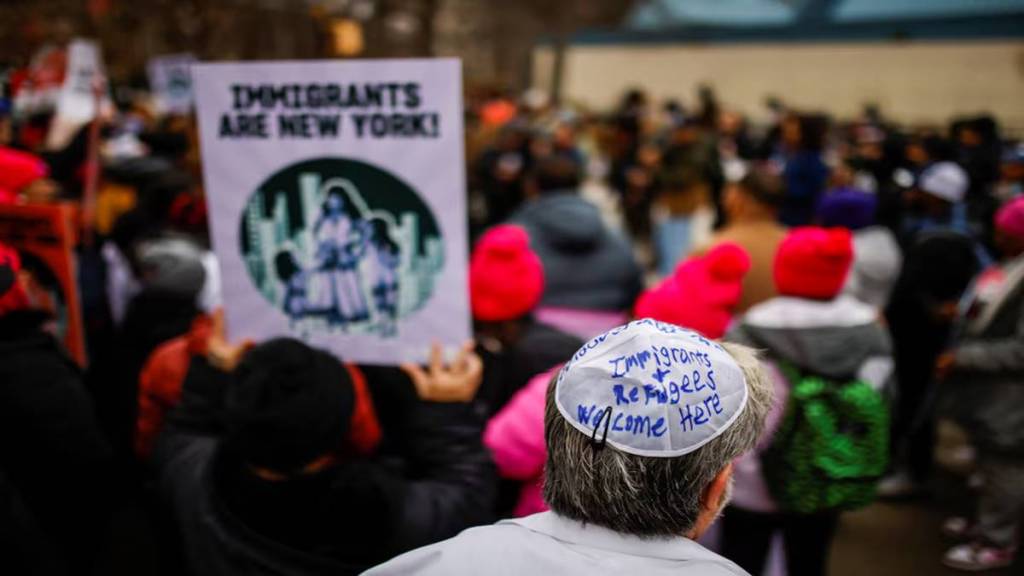The Trump administration is set to begin a sweeping week-long immigration enforcement operation in Chicago starting Tuesday. Between 100 and 200 U.S. Immigration and Customs Enforcement (ICE) officers will participate in the raids, targeting undocumented immigrants with criminal backgrounds, according to reports from The Wall Street Journal. This initiative forms part of President Donald Trump’s broader immigration policy, which has pledged strict enforcement measures against those in the country illegally.
A Broader Target
While the operation prioritizes individuals with criminal records, ICE officers are authorized to detain others without legal status who are discovered during the raids. This could include thousands of undocumented immigrants, including Indian nationals—a demographic that has seen a sharp rise in deportations in recent years.
The US Department of Homeland Security (DHS) reported that 1,100 Indian nationals were deported in the fiscal year 2024 alone, a substantial increase from previous years. The escalation underscores the administration’s intensified focus on removing individuals overstaying visas or entering unlawfully.
Indian Nationals in Focus
Indian nationals now rank among the largest groups detained by ICE, with nearly 4,000 deportations occurring during Trump’s first term in office. Despite slight dips in numbers during subsequent years under President Biden, the data suggest continued enforcement pressure on this demographic.
Many Indian immigrants overstaying visas or entering through unconventional routes, including the U.S.-Mexico border, are at particular risk. DHS reports indicate that the growing number of deportations reflects enhanced cross-agency collaboration, technological advances in identifying undocumented individuals, and stricter policies on overstays.
Implications for Chicago’s Indian Community
Chicago’s vibrant Indian-American community includes a significant number of undocumented immigrants. Local advocacy groups have raised concerns about the impending raids, noting that they could disproportionately affect families, many of whom have lived in the U.S. for decades.
In response to the planned operation, community organizations are offering legal aid and conducting workshops on immigrants’ rights. These efforts aim to provide practical advice, such as how to respond to ICE agents and where to seek immediate legal assistance.
“Indian nationals have been one of the fastest-growing immigrant populations in the U.S.,” said an immigration rights advocate in Chicago. “These raids don’t just disrupt lives; they also strain trust within our communities.”
A National Strategy
The Chicago raids are part of a larger operation that may expand to other cities, including New York, Los Angeles, Miami, and Denver, according to officials familiar with the matter. The raids coincide with the administration’s push to penalize local jurisdictions that fail to cooperate with ICE efforts, potentially escalating tensions between federal agencies and sanctuary cities.
Under President Trump’s leadership, immigration enforcement has been redefined as a cornerstone of domestic policy. The formation of special task forces within ICE has allowed for more targeted operations, while increased collaboration with technology companies has streamlined the identification process of undocumented individuals.
Uncertainty Ahead
For Indian nationals in Chicago and across the U.S., the coming weeks could prove tumultuous. Community leaders have expressed concerns about potential legal missteps and are calling on individuals at risk to seek counsel immediately.
The broader implications of these raids extend beyond the individuals directly affected. With significant numbers of skilled and entrepreneurial immigrants among those detained, the operation risks disrupting the economic and cultural contributions of these communities.
While supporters of the administration’s policies argue that these measures uphold the rule of law, critics maintain that they come at a significant humanitarian cost. For now, Chicago is bracing for what could be one of the most consequential immigration crackdowns in recent years.
As the week unfolds, attention will remain on ICE’s execution of the operation and its impact on vulnerable populations, including Indian nationals caught in the crossfire of America’s immigration debate.

